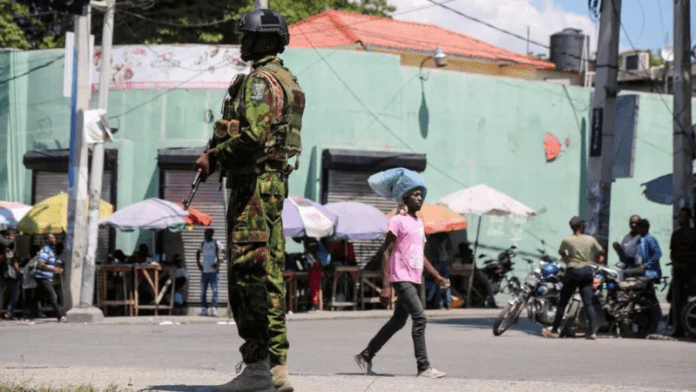At least 110 elderly residents have been brutally murdered in Haiti’s capital, Port-au-Prince, by gang members in a horrifying wave of violence, according to the National Human Rights Defence Network (RNDDH).
The massacre reportedly unfolded in the Cité Soleil neighborhood over the weekend, targeting elderly residents accused of witchcraft.
According to RNDDH, a gang leader, Monel Felix—known as Mikano—ordered the killings after a voodoo priest allegedly blamed his son’s mysterious illness and subsequent death on elderly locals practicing witchcraft.
UN Human Rights Chief Volker Türk revealed that 184 people were killed in violence orchestrated by Mikano’s gang. RNDDH estimated 60 elderly residents were killed on Friday, with another 50 murdered on Saturday.
Victims, primarily aged over 60, were dragged from their homes in the Wharf Jérémie area, brutally stabbed or shot to death, and their mutilated bodies burned in the streets. Some younger residents who tried to protect the elderly were also killed.
Mikano’s gang, part of the Viv Ansanm gang alliance, controls Wharf Jérémie—a strategically significant but impenetrable area within the port. Local media reported that residents were trapped by the gang, delaying the spread of news about the massacre.
Haiti has been engulfed in spiraling gang violence since the assassination of President Jovenel Moïse in 2021. Gangs now control an estimated 85% of Port-au-Prince and vast rural areas, forcing over 700,000 people—half of them children—to flee their homes, according to the International Organization for Migration.
The United Nations estimates that over 5,000 people have been killed in gang-related violence this year alone. The weekend killings in Cité Soleil are believed to be the deadliest incident of 2024.
Gang violence has shifted focus from rival factions to ordinary residents. The massacre in Cité Soleil follows an earlier tragedy in October when 115 people were killed in the Artibonite department by the Gran Grif gang. The attack targeted residents who had joined a vigilante group resisting gang extortion.
Gangs also use sexual violence, including gang rape, as a tool to terrorize populations. Human Rights Watch recently highlighted the impunity with which gang members commit such acts, underscoring the breakdown of the rule of law in Haiti.
The Kenyan-led Multinational Security Support Mission, deployed in June to assist the Haitian National Police, has faced significant challenges. The force remains underfunded and ill-equipped to confront the heavily armed gangs.
Meanwhile, the Transitional Presidential Council (TPC), tasked with organizing elections and restoring democratic order, has been mired in turmoil. After replacing the interim prime minister last month, the council has made little progress toward stabilizing the country.
As violence escalates, the plight of Haitians continues to worsen, with calls for stronger international intervention and comprehensive strategies to address the country’s deepening crisis.







